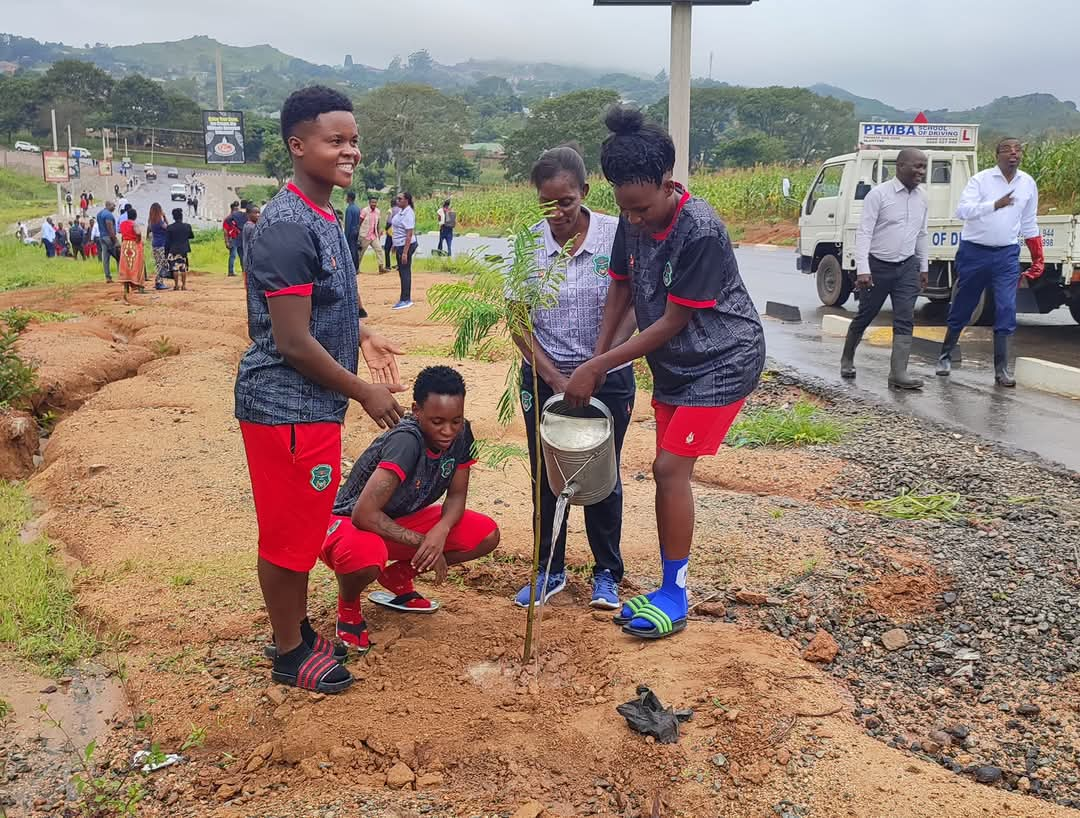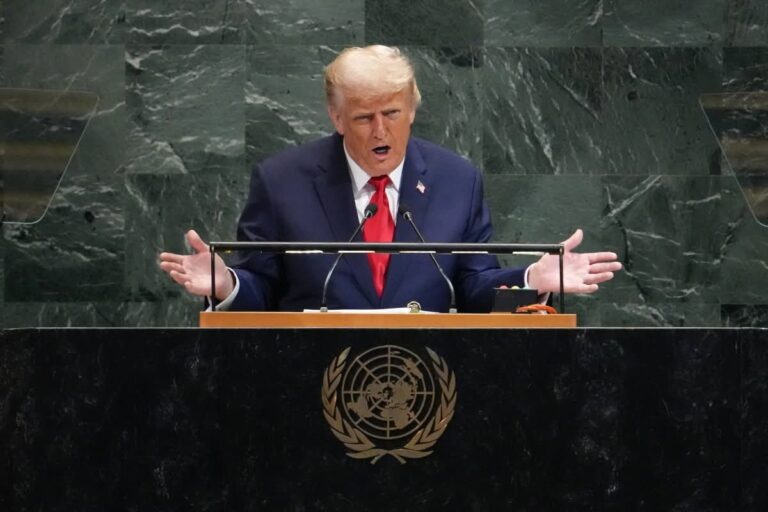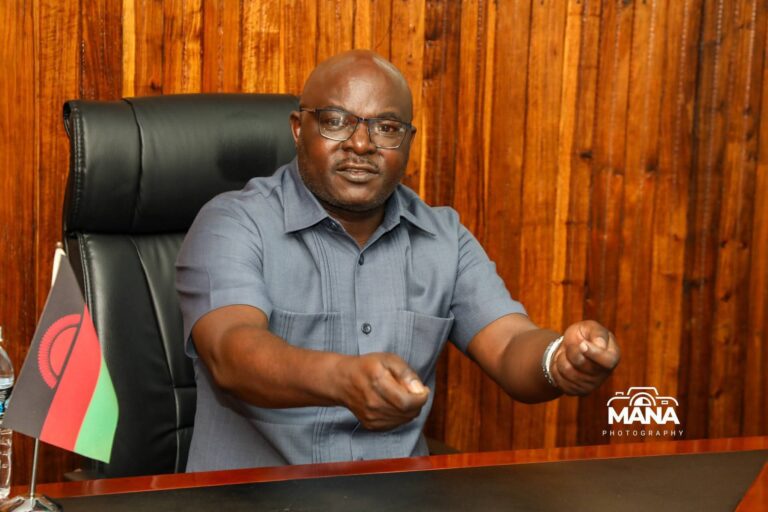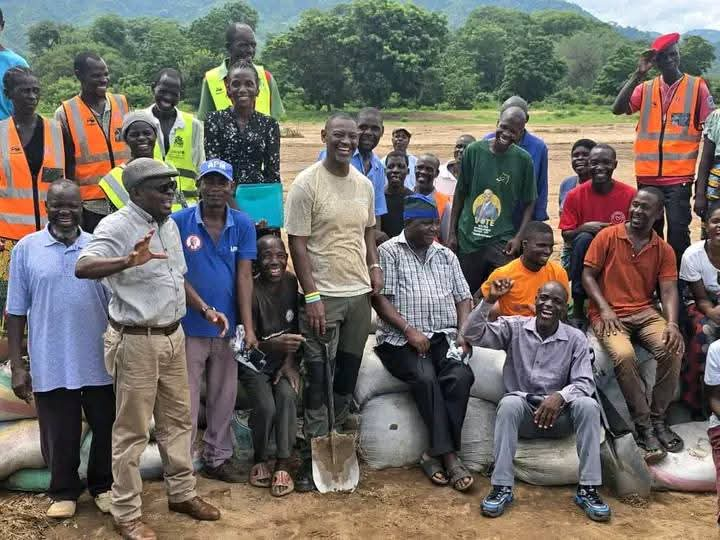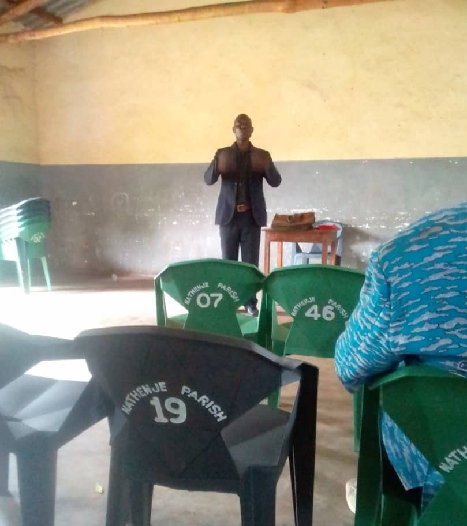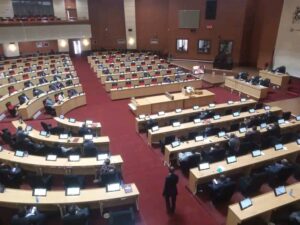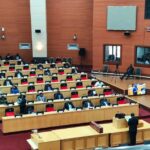By Burnett Munthali
Football Association of Malawi (FAM) president Fleetwood Haiya has called upon all football affiliates, clubs, and stakeholders to make good use of the off-season break by engaging in environmental conservation efforts through tree planting.
His appeal comes as part of FAM’s commitment to corporate social responsibility and the promotion of sustainable environmental practices within the football community.
Haiya made these remarks in Blantyre after leading Malawi’s women’s national football team, the Scorchers, in planting 40 Acacia seedlings along the bypass road stretching from Chinyonga Township to the Masauko Chipembere Highway near the Independence Arch.
The event, which attracted both football and civic leaders, underscored the growing link between sports and environmental stewardship.
Accompanying Haiya at the event were Blantyre City Mayor Joseph Makwinja and Djibouti Football Federation (DFF) president Souleiman Hassan Waberi, who both expressed their support for the initiative.
Addressing the participants, Haiya emphasized the importance of tree planting as a means to combat deforestation and climate change while also enhancing the beauty of Malawi’s urban landscapes.
“We encourage all football lovers, including TNM Super League teams, to embrace this tree-planting initiative, which will help to preserve the environment,” Haiya stated.
He further urged football clubs to take responsibility for their surroundings and to ensure that their communities benefit from similar initiatives.
The event also saw active participation from Scorchers’ players, with star striker Temwa Chawinga and goalkeeper Mercy Sikelo expressing their excitement about being part of an initiative that goes beyond the football pitch.
Both players acknowledged the importance of trees in promoting a healthier environment and pledged to support such efforts in the future.
On his part, Blantyre City Mayor Joseph Makwinja commended FAM for spearheading the initiative but also urged the football association to take long-term responsibility for the trees to ensure their survival.
He called on other organizations to emulate FAM’s example, emphasizing that environmental conservation requires collective effort.
As Malawi continues to face environmental challenges such as deforestation and climate change, such initiatives highlight the role that sports organizations can play in addressing these issues.
By using their influence and popularity, football stakeholders have an opportunity to inspire communities to take an active role in environmental conservation.
With Haiya’s leadership and commitment, FAM’s tree-planting initiative is expected to gain momentum, setting a precedent for future projects that combine sports with sustainability.
As the off-season progresses, it remains to be seen how many teams and football lovers will heed the call and contribute to making Malawi greener.
